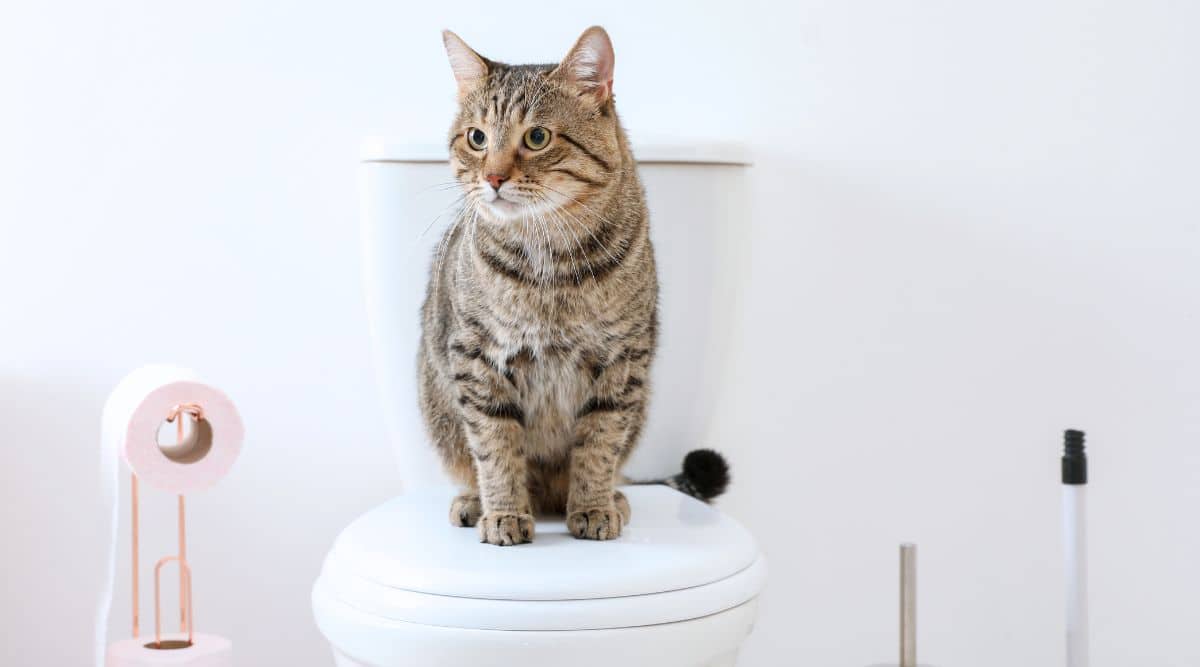Dangers of Disposing Cat Poop in Your Toilet - Preventive Measures
Dangers of Disposing Cat Poop in Your Toilet - Preventive Measures
Blog Article
Almost everyone is bound to have their own unique perception in relation to How to Dispose of Cat Poop and Litter Without Plastic Bags.

Introduction
As cat proprietors, it's important to be mindful of just how we dispose of our feline good friends' waste. While it may appear convenient to purge pet cat poop down the bathroom, this method can have destructive effects for both the setting and human health.
Ecological Impact
Flushing pet cat poop presents dangerous microorganisms and bloodsuckers into the water system, posturing a considerable risk to aquatic ecosystems. These pollutants can adversely affect marine life and compromise water quality.
Health and wellness Risks
In addition to environmental issues, flushing feline waste can likewise posture health and wellness threats to humans. Pet cat feces may have Toxoplasma gondii, a bloodsucker that can cause toxoplasmosis-- a possibly extreme illness, particularly for expecting females and people with damaged immune systems.
Alternatives to Flushing
Thankfully, there are safer and more accountable means to deal with pet cat poop. Think about the adhering to choices:
1. Scoop and Dispose in Trash
The most common method of getting rid of pet cat poop is to scoop it right into an eco-friendly bag and throw it in the garbage. Make sure to utilize a dedicated clutter scoop and dispose of the waste promptly.
2. Use Biodegradable Litter
Go with naturally degradable feline clutter made from materials such as corn or wheat. These clutters are eco-friendly and can be safely thrown away in the garbage.
3. Bury in the Yard
If you have a lawn, think about hiding pet cat waste in a marked location away from veggie yards and water resources. Make certain to dig deep adequate to avoid contamination of groundwater.
4. Mount a Pet Waste Disposal System
Invest in a family pet waste disposal system specifically created for pet cat waste. These systems make use of enzymes to break down the waste, minimizing smell and ecological effect.
Final thought
Responsible animal possession prolongs past supplying food and sanctuary-- it also includes correct waste monitoring. By refraining from purging pet cat poop down the bathroom and going with alternative disposal methods, we can lessen our environmental footprint and protect human health and wellness.
Why You Should Never Flush Cat Poop Down the Toilet
A rose by any other name might smell as sweet, but not all poop is created equal. Toilets, and our sewage systems, are designed for human excrement, not animal waste. It might seem like it couldn’t hurt to toss cat feces into the loo, but it’s not a good idea to flush cat poop in the toilet.
First and foremost, assuming your cat uses a litter box, any waste is going to have litter on it. And even the smallest amount of litter can wreak havoc on plumbing.
Over time, small amounts build up, filling up your septic system. Most litter sold today is clumping; it is made from a type of clay that hardens when it gets wet. Ever tried to scrape old clumps from the bottom of a litter box? You know just how cement-hard it can get!
Now imagine just a small clump of that stuck in your pipes. A simple de-clogger like Drano isn’t going to cut it. And that means it’s going to cost you big time to fix it.
Parasitic Contamination
Believe it or not, your healthy kitty may be harboring a nasty parasite. Only cats excrete Toxoplasma in their feces. Yet it rarely causes serious health issues in the cats that are infected. Most people will be fine too if infected. Only pregnant women and people with compromised immune systems are at risk. (If you’ve ever heard how women who are expecting are excused from litter cleaning duty, Toxoplasma is why.)
But other animals may have a problem if infected with the parasite. And human water treatment systems aren’t designed to handle it. As a result, the systems don’t remove the parasite before discharging wastewater into local waterways. Fish, shellfish, and other marine life — otters in particular — are susceptible to toxoplasma. If exposed, most will end up with brain damage and many will die.
Depending on the species of fish, they may end up on someone’s fish hook and, ultimately on someone’s dinner plate. If that someone has a chronic illness, they’re at risk.
Skip the Toilet Training
We know there are folks out there who like to toilet train their cats. And we give them props, it takes a lot of work. But thanks to the toxoplasma, it’s not a good idea.

Do you appreciate reading up on Don’t flush cat feces down the toilet? Give feedback directly below. We would be pleased to see your suggestions about this article. In hopes that you come back again in the future. Make sure you set aside a second to distribute this post if you enjoyed it. I treasure reading our article about How to Dispose of Cat Poop and Litter Without Plastic Bags.
Call Today Report this page